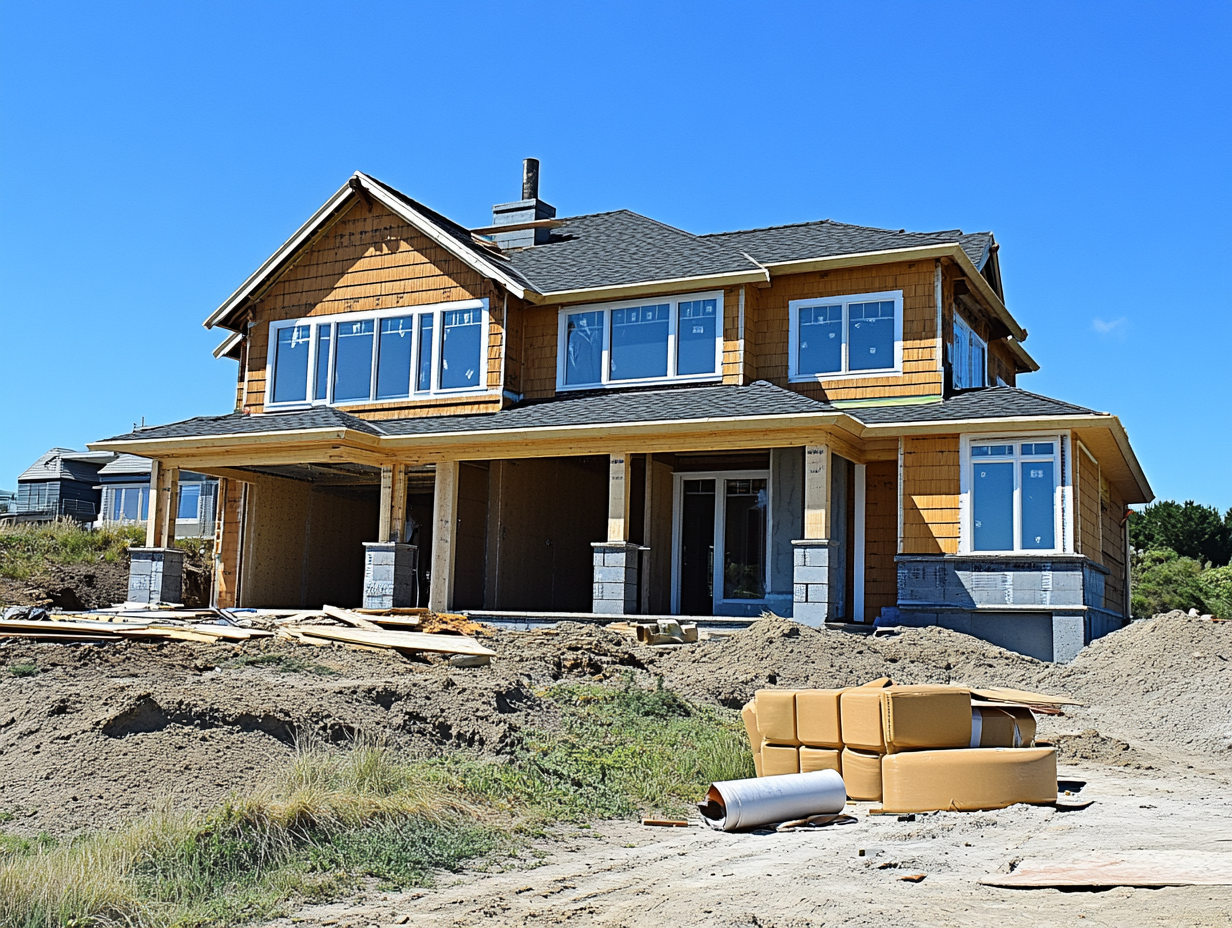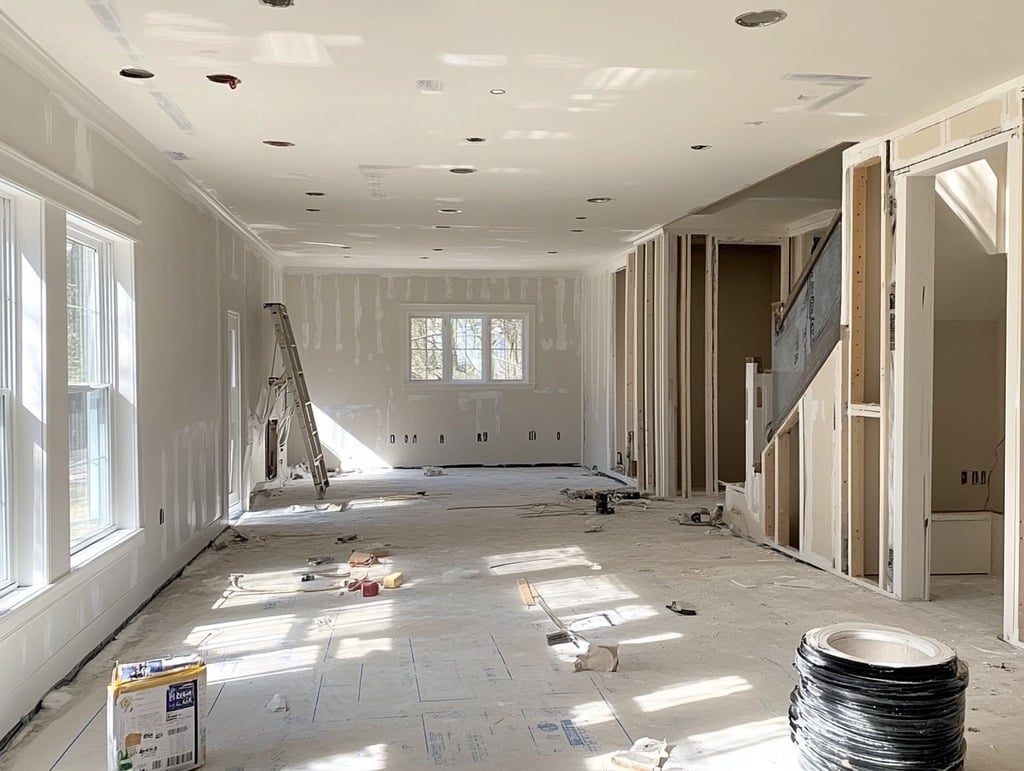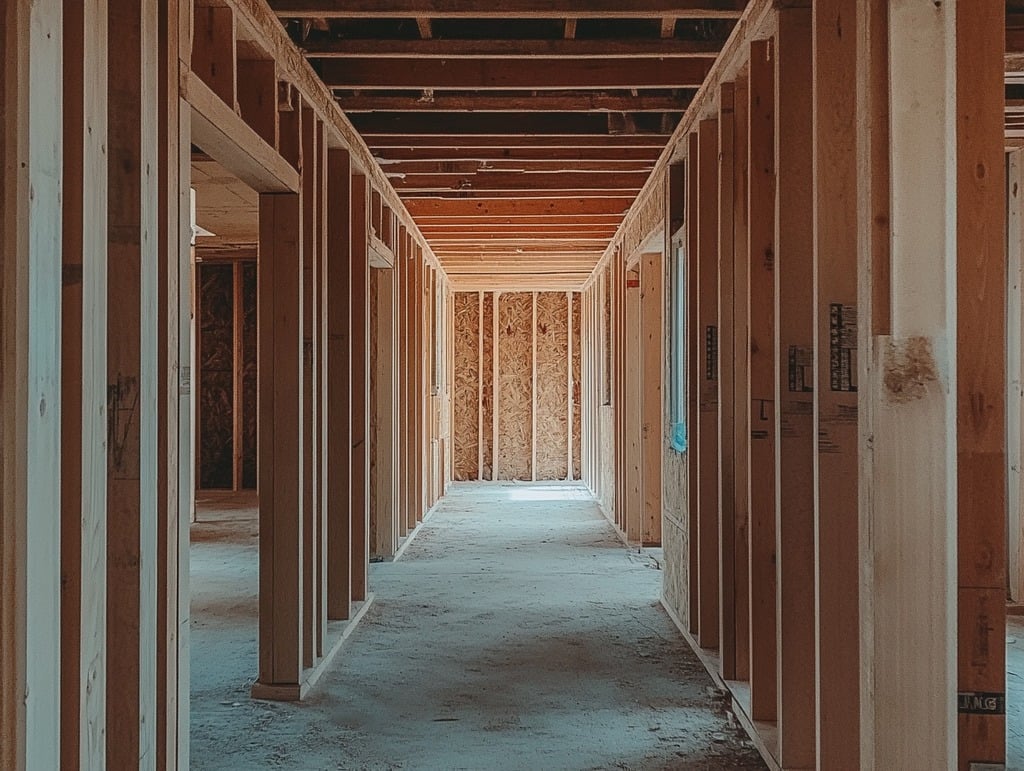Making the decision between renovating your current home or purchasing a new one can be challenging. Both choices come with distinct pros and cons, and there’s no one-size-fits-all solution. To help you make the best decision, it’s crucial to evaluate several key factors—one of the most important being your home’s equity.
With that in mind, the first step is to determine how much equity you currently have. This can be a game changer when weighing your options. Not sure how much equity you’ve built up? No worries—you can check using our free Home Valuation Tool. It only takes a few minutes and could be the deciding factor between renovating or moving.
Let’s take a closer look at the main considerations that will help guide your choice.
1. Understanding Your Home Equity
Home equity is the difference between your home’s current value and what you still owe on your mortgage. It’s a financial asset that grows as you pay down your mortgage and as your home’s value appreciates over time. Your equity is crucial in determining how much financial flexibility you have to either renovate or purchase a new home.
- For Renovation: Equity can be leveraged to fund your renovation through a home equity loan, home equity line of credit (HELOC), or cash-out refinancing. These financing options allow you to borrow against your home’s equity to cover renovation costs, making significant upgrades more affordable.
- For Buying a New Home: If you’re looking to purchase a new home, your home equity can serve as a substantial down payment, helping you secure a more favorable mortgage rate and lower monthly payments. In a hot market, this could allow you to afford a more desirable home in a better location.
Want to know where you stand? Our free Home Valuation Tool provides an easy way to assess your home’s current market value and the equity you’ve built.
2. When Renovating Makes Sense
Renovating can be an excellent choice for those who love their current home or location but feel like the space could use a bit of improvement. It offers you the flexibility to customize your home according to your specific needs and tastes. Consider renovating if:
- You Love Your Location: You might be in a neighborhood that’s close to your job, family, schools, or local amenities. Moving to a new home could mean giving up those conveniences. Renovating allows you to upgrade your space while staying in the same community.
- Moving Costs Are Too High: Purchasing a new home comes with numerous additional costs, such as real estate broker fees, closing costs, moving expenses, and possible renovations in the new home. Sometimes, the cost of a move can outweigh the benefits, making renovation a more practical and cost-effective choice.
- You Want to Increase Property Value: Renovations can add value to your home, increasing its market worth. Kitchen and bathroom remodels, for example, tend to offer a high return on investment (ROI). If you’re planning to sell down the road, these improvements can make your home more attractive to potential buyers.
- Emotional Attachment to Your Home: Let’s face it—some homes are filled with memories that make it hard to leave. If you’ve invested time, love, and effort into your home, you may not want to move. In this case, a renovation could breathe new life into your space without sacrificing the sentimental value.
3. When Buying a New Home Is the Better Option
While renovating has its perks, there are situations where purchasing a new home is a more practical choice. Here are a few scenarios where buying new might be the better option:
- Your Home No Longer Meets Your Needs: If your family is growing or your lifestyle is changing, you may need more space, different amenities, or a new layout. In some cases, no amount of renovation will be able to fix the fact that your home just isn’t big enough or doesn’t meet your modern needs.
- Renovation Costs Are Too High: If the renovations required to bring your home up to standard are significant—think major structural repairs, electrical updates, or extensive plumbing work—the costs can skyrocket. In these cases, purchasing a newer, move-in-ready home could be the smarter financial move.
- You Want a Fresh Start: Sometimes, it’s not just about square footage or modern features. Maybe you’re ready for a change of scenery, a new neighborhood, or simply want to move closer to work or family. In that case, buying a new home can offer you the lifestyle upgrade you’re craving.
- Market Conditions Favor Buying: If you’re in a buyer’s market where home prices are more affordable, it might make financial sense to purchase a new home instead of putting money into a costly renovation. The same applies if you’re in a hot seller’s market—selling your current home for a significant profit could give you the funds needed to upgrade to a bigger or better property.
4. The Role of Market Conditions
Both renovation and buying decisions are heavily influenced by current housing market conditions. If the real estate market is highly competitive with rising home prices, it may be more economical to renovate and stay put. Conversely, if home prices are dipping and you’re seeing more favorable deals on new homes, buying might be the way to go.
Another aspect to consider is the timing of your decision. Selling your home during a seller’s market could give you the upper hand, enabling you to sell at a premium price and reinvest the profits into a new home. On the flip side, waiting for a buyer’s market could help you snag a great deal on a new home, saving you money in the long run.
5. Financing Options to Weigh
Whether you choose to renovate or buy a new home, understanding your financing options is key:
- Renovation Financing: Homeowners often fund renovations using a home equity loan or HELOC. These loans allow you to borrow against the equity you’ve built in your home. Cash-out refinancing is another option, which allows you to refinance your mortgage for more than what you owe and pocket the difference to use for renovations.
- Buying a New Home: When buying a new home, your existing equity can be used as a down payment on the new property. This can help reduce your loan amount and lower your monthly mortgage payments. If you’ve built significant equity, it could also provide the opportunity to purchase a higher-priced home or one in a more desirable area.
Final Thoughts: What’s the Best Choice for You?
When weighing whether to renovate or buy a new home, consider your financial situation, lifestyle needs, and long-term goals. Renovating offers the advantage of staying in a familiar space while upgrading it to meet your current needs. Meanwhile, buying a new home gives you the opportunity for a fresh start with updated features and more space.
Still undecided? One of the most important steps is understanding your home’s value and how much equity you have. This information can help guide your decision, ensuring you make a choice that’s both financially sound and aligned with your future plans.
Don’t forget to use our free Home Valuation Tool to get a clear picture of your home’s value. Knowing your equity is the first step toward making an informed decision about whether to stay and renovate or move on to a new home.







